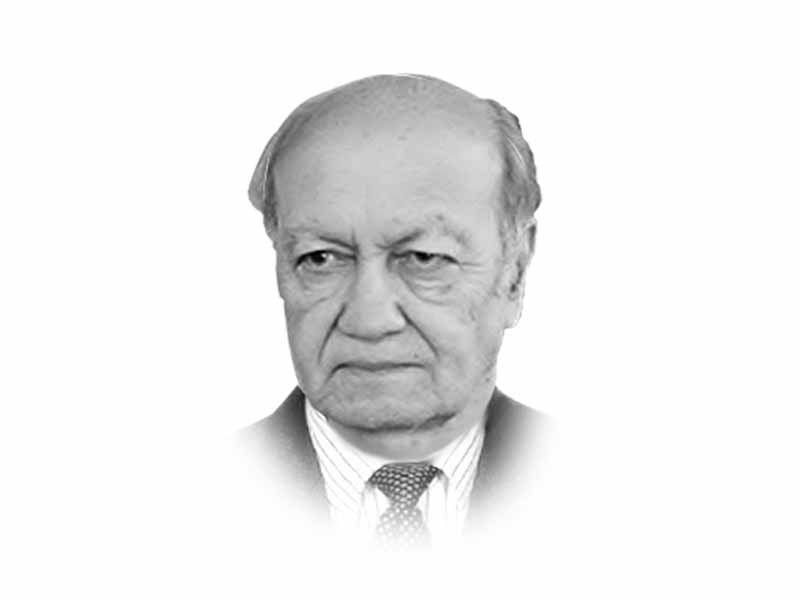
Regrettably, this is not the first time that international coalitions and major countries have condemned these groups and advised Pakistan to take action against them. Notwithstanding that the Chinese foreign minister during the recent visit of our foreign minister to Beijing came out in defence of Pakistan. He lauded Pakistan’s efforts to combat terrorism and recognised that some countries have not given full credit for its efforts. This was obviously in response to implied criticism of Pakistan in the recent communiqué of Brics.
Pakistan faced a similar situation in 2016 when at the Heart of Asia conference in Amritsar, China went along with other countries to criticise the presence of certain terrorist organisations located in Pakistan jeopardising the security situation in Afghanistan. Specifically it mentioned the Haqqani Network, the Lashkar-e-Taiba, the Jaish-e-Mohammad, etc.
It is unfortunate that Pakistan failed to react positively and had to once again face similar criticism. This time the forum was more important and received wider publicity as the impact of Brics declaration is far reaching.
The Chinese decision should be taken in a positive sense and prompt our decision-makers to reflect seriously as to how the support of certain militant groups contributes in spreading extremism and terrorism. Not to mention it has invited the ire and serious opposition from several countries of the world. More to the point, in what way are we any closer after 70 years to the resolution of the Kashmir issue by supporting these groups or bringing Afghanistan any closer? In contrast, India has succeeded in projecting the Kashmir freedom struggle as “Pakistan engineered terrorism” and Indian influence in Afghanistan gets deeper. And the genuine cause of Kashmiris continues to be compromised. Not surprising the All Parties Hurriyat leaders and other indigenous groups resisting Indian occupation do not approve of the activities of these militant groups. The Hizbul Mujahedin falls in a different category and has been included in the list of proscribed organisations more to please India than on the basis of any fair criteria.
Some analysts believe that the role of the Haqqani Network in Afghanistan is deliberately exaggerated by the United States to cover its failings and place blame on Pakistan. This may have an element of credibility but what is more relevant that the Haqqani Network’s presence in many ways goes counter to Pakistan’s interest.
All this points towards two major aspects that need serious introspection and action. Is the present method of formulation and implementation of foreign, defence and security policies in accordance with democratic norms? It is no secret that the army’s role in it is predominant. Experience of other democratic countries, and our own over the years, clearly indicates that this task remains the primary responsibility of the civilian government with critical input from the armed forces. Secondly, preparation of national policies should be institutionalised and it is encouraging that the present Prime Minister realises its significance. Hopefully, the practice of holding cabinet and security committee meetings becomes a regular feature. Harping that the civilian government and the military are on the “same page” betrays lack of confidence and maturity in the top leadership. It is illusory and contributes toward strengthening the existing flawed power-sharing and decision-making structure. Have we ever heard of similar reassurances from other democratic countries including those that achieved independence about the same time or even later such as Bangladesh or Sri Lanka?
A common remark by fellow Pakistanis that the country does not have a foreign policy smacks of ignorance. Surely, we have a foreign policy and it is different matter that the military plays a dominant role in it. It is clearly reactive and transitional and fails to take a long-term view of national interests. One could argue it is not institutionalised and the political leadership shows scant interest and the military’s dominance forces it to take a back seat. Pakistan’s internal contradictions also adversely affect the quality and impact of our foreign policy. But to say we have no foreign policy is erroneous.
Crying hoarse that Pakistan has suffered most in the fight against terror along with Afghanistan may have certain peripheral benefits. But it has failed to win sympathy and support of our position. It reflects as though we were not fighting for our own good but to satisfy the aims and goals of super and major powers. It reflects a sense of insecurity that deliberately foreign powers exploit.
The chaos in Afghanistan and the perennial hostility with India prevent us from focusing on the internal economy and political cohesion. Not realising that internal stability and economic self-reliance are central to building the nation’s confidence. Having close strategic and political ties in which mutual interests govern relationships is very different from leaning heavily on major powers. Pakistan has suffered from this malaise and needs to develop greater confidence in dealing with major powers. All this would be possible if we reduce our dependence on them.
Pakistan has to take its destiny in its own hands and that is only possible if it develops the capability of placing its economy on a self-sustaining path. Brings about political order and discipline and adopts security policies that are good for itself and for the region. Or are we going to continue on the path of unruliness? Is it not long overdue that sobriety and good sense prevail among the major stakeholders. The people of Pakistan wait for better results. This is not an empty dream but a serious call for survival and long-term prosperity.
Published in The Express Tribune, September 13th, 2017.
Like Opinion & Editorial on Facebook, follow @ETOpEd on Twitter to receive all updates on all our daily pieces.

1732849469-0/women-in-male-field-(1)1732849469-0-165x106.webp)










COMMENTS (1)
Comments are moderated and generally will be posted if they are on-topic and not abusive.
For more information, please see our Comments FAQ